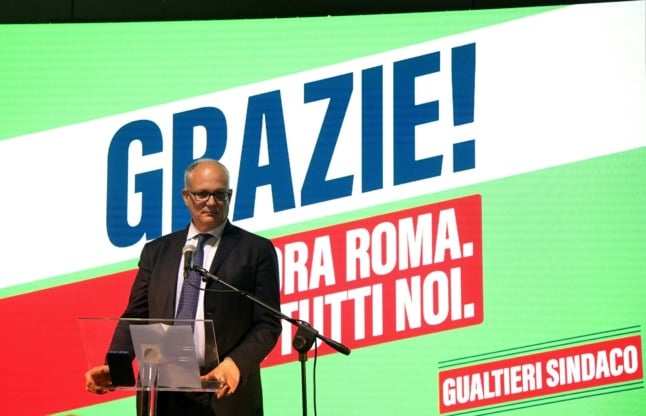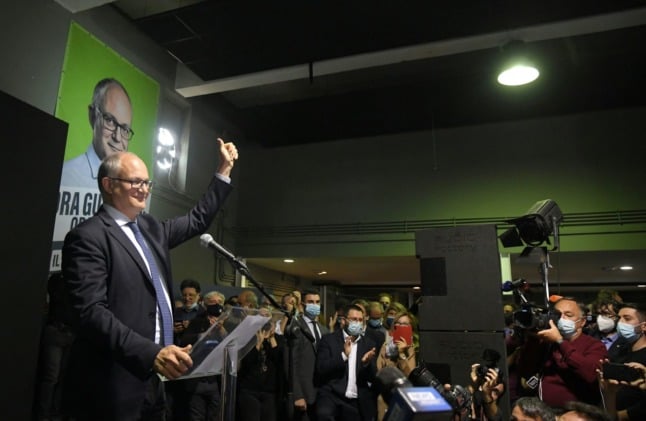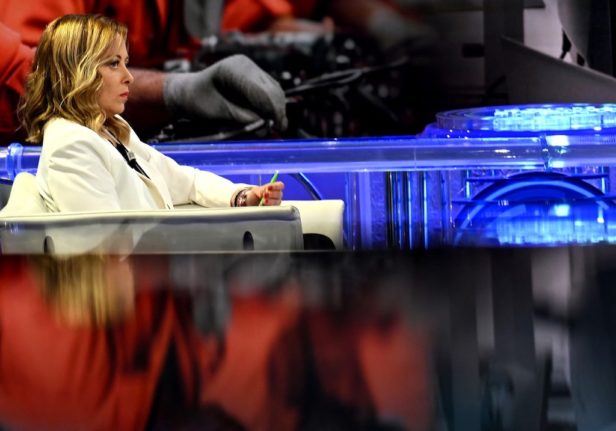With counting complete in more than 92 percent of polling stations, Roberto Gualtieri was leading with more than 60 percent over the right-wing candidate Enrico Michetti, a lawyer and local talk radio host with no prior political experience.
“The result is clear cut. I wish good luck to Roberto Gualtieri,” the loser of the second-round run-off vote said in a concession statement.
Gualtieri, 55, is seen as a safe pair of hands.
A trained historian whose only known extravagance is a love for playing Brazilian music on the guitar, he served in government during 2019-2021, and was previously head of the European Parliament’s economic affairs committee.
His victory marked another setback for Italy’s right-wing bloc, which despite leading in national opinion polls, lost other key mayoral battles in a first round of local elections two weeks ago — namely in Milan, Naples and Bologna.
READ ALSO: Rome votes in mayoral election dominated by rubbish and wild boars
The result is another setback for Italy’s right-wing bloc, which has been leading national opinion polls for months.
It comprises Matteo Salvini’s nationalist League party, Giorgia Meloni’s hard-right Brothers of Italy (FDI) and Silvio Berlusconi’s Forza Italia.
Their parties fared relatively badly in the first round of the local elections two weeks ago, losing mayoral races in key towns such as Milan, Naples and Bologna.
Analysts do not expect the result of the two rounds of local voting to destabilise Prime Minister Mario Draghi’s government, which is backed by a left-right coalition.
On Monday, the centre-left was also predicted a win in Turin, in the northwest. Both Rome and Turin were previously run by the formerly anti-establishment Five Star Movement, which suffered a rout.
Aside from the capital, more than 60 towns and cities held mayoral elections on Sunday and Monday, although there was a very low turnout.

In the Eternal City, the campaign was dominated by complaints about its state of disrepair, including a rubbish crisis so serious that overflowing dumpsters are attracting wild boars.
“Rome cannot resign itself to talking about just rubbish and potholes. Rome is a great European capital,” Gualtieri said at his closing electoral rally on Friday.
Michetti’s campaign was derailed last week when he was forced to deny accusations of anti-Semitism over an article he wrote last year that was unearthed by a left-wing newspaper.
In it, he said the Holocaust was commemorated more than other massacres because the Jews “control banks and a lobby capable of deciding the fate of the planet”.
Michetti had also previously suggested that the stiff-armed Roman salute – commonly used by fascists – should be used during the coronavirus pandemic because it was more hygienic.
READ ALSO: Mussolini’s granddaughter tops polls for Rome local election
The right-winger, 55, had no previous political experience before running for mayor. In Rome, he was known as a lawyer and a pundit on a local talk radio channel.



 Please whitelist us to continue reading.
Please whitelist us to continue reading.
Member comments